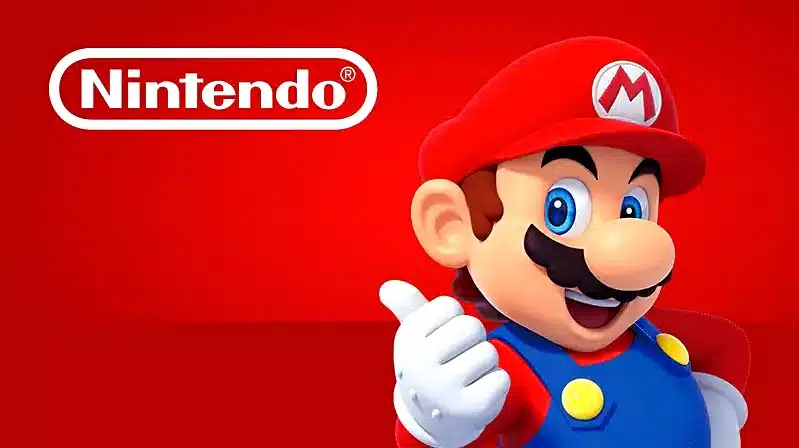Satoru Iwata was a popular boss and saw it as his responsibility to look after his employees
If you haven’t been living under a rock recently, you will have noticed the many redundancies in tech companies. For example, Microsoft laid off 1,900 people from its games division as part of the Activision-Blizzard  purchase.
Other giants such as Amazon, SAP and Google have also let go of numerous employees. According to a list from TechCrunch there were 19,350 redundancies in tech companies in January 2024 alone.
In the wake of the news of League of Legends developer Riot, which laid off a tenth of its workforce in January 2024, an honorable act by former Nintendo CEO Satoru Iwata resurfaced.
Satoru Iwata (god bless him) took a 50% pay cut after WiiU’s poor sales TO NOT LAY OFF WORKERS and you can’t tell me that the higher ups of Riot couldn’t do the same and still earn a good salary? pic.twitter.com/xWBl52IkzN
– PunyPenguin // Princess of Harmony is Coming! (@PunyPunyPenguin) January 23, 2024
Eleven years ago, Nintendo of all companies showed that there are other solutions than laying off employees en masse.
2013: Traditional company Nintendo in trouble
We remember: In contrast to the Wii, the Wii U released in 2013 was a financial disaster. The Wii sold around 101 million units between 2006 and 2013, while its successor console, the Wii U, sold just 13.5 million between 2012 and 2017 – just under a seventh
Nintendo was in a tight spot
In order to avoid redundancies, the then CEO Satoru Iwata, who led the company from 2002 to 2015 until his death, waived half of his salary.
This was Iwata-san’s conviction
The then-CEO of Nintendo believed that his company could only recover financially with a full staff. Game Developer quotes the man from a 2013 article as follows:
If we reduce headcount to achieve better short-term financial results, morale will drop. I seriously doubt that employees who fear being laid off will be able to develop software titles that could impress people around the world.
So it was important to the Nintendo boss not to achieve short-term success through layoffs, but to steer the company out of the crisis in the long term.
In the end, Iwata’s sacrifice paid off, as his decision gave Nintendo a boost and enabled it to successfully launch the Switch on the market in 2017. Today, it is the third best-selling console of all time with 139 million units sold. Unfortunately, Satoru Iwata did not live to see this success, as he died of cancer in 2015.
If you would like to read more about the popular Nintendo boss, we recommend our obituary from that time.
The big picture: The decision to start with oneself instead of firing employees also falls into a cultural aspect of Japan.
“Hansei” has become established in management there. It means reflection
and thus means dealing with one’s own good and bad qualities and behavior in the face of upcoming situations and problems.
Incidentally,
Iwata was not the only boss in history to give up part of his salary. When Steve Jobs returned to Apple in 1997, he initially worked for 1 US dollar in order to be able to feed his actual monetary earnings back into the company and thus strengthen it.
Salary cuts for managers are not always the solution
CNBC puts Iwata’s salary cut in context. As part of this topic, the portal asked an executive coach for his opinion:
Executive pay cuts are relatively rare because they don’t really address some of the underlying issues that lead to layoffs, such as when the product strategy isn’t working, the go-to-market strategy isn’t working or the pricing is wrong.
The expert adds that it is not uncommon for CEOs to have a clause in their contract that protects them from salary cuts and comments: “This can send the wrong signal if a company wants to keep its CEO and executives or if a new CEO wants to take over”.
The statement is illustrated by the following two examples. This was the headline Bloomberg during the actors’ and writers’ strike in Hollywood in the summer of 2023: “Hollywood CEOs earned more than $1 billion and fired thousands”. At Alphabet and Microsoft, too, CEO salaries initially rose before employees were fired, writes ABC News
In any case, Satoru Iwata’s practice has paid off for Nintendo. With the successful Nintendo Switch behind it, the company is currently focusing on the development of its successor, which we expect to be announced soon.
By the way: Satoru Iwata was only the fourth head of Nintendo in the company’s history of over a hundred years. Before that, he was CEO of HAL Laboratory, the game developer best known for its work on Super Smash Bros.
Did you know the story about Satoru Iwata? Let us know in the comments.


